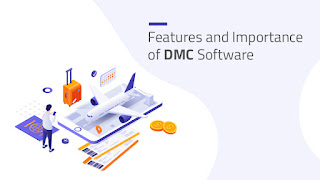How to Prevent Cybersecurity Threats in Online Travel Business
There are a lot of threats emerging lately
in the online world particularly attacking online business websites. One of the
most popular businesses is travel so it is not surprising how criminals always
target this type of online sites. Traveling is a popular hobby nowadays with
social media always promoting destinations that promise a relaxing stay. In the
daily grind of employees, of course, they don't have time to do manual booking
instead they opt for the more convenient way which is through online travel
sites. These websites collect data such as personal information and credit card
details (with client consent of course) that's why they are the apple of the
eye of online predators. With this in mind, they can't afford to overlook the
threats posed by cyber crimes.
A booking platform online is natural prey
for cyber attacks. If you are not aware or vigilant towards it, this might
cause a lot of problems in the future. Naturally, if your customers learned
that their data is unsafe and your payment gateway is not secure, then you'll
lose a lot of customers. It is very likely that they will look for another
booking platform that is much safer and secure.
Major Cyber Threats to Keep an Eye On:
You might be wondering what major cyber
threats should you be aware of and protect your business from? Read the details
below.
Malware:
Malware is also known as the virtual virus.
It includes all kinds of Trojans, viruses, and worms online. It attacks a
system through email attachments, software downloads or the whole operating
system. To prevent such problem, always keep your system's anti-virus and
security software updated. Plus, avoid downloading or opening emails from an
unknown source.
Phishing:
This is one of the most common schemes of
scammers online. Phishing emails request looks similar to the emails of your
trusted third party websites. When you click on the link it will take you to a
dummy site very similar to the original asking you to enter your personal
information. There are cases worldwide where clients receive an email from a
prestigious bank asking them to verify their account information on a
third-party site that appears like the authentic one. So, these clients enter
their information and the next day all of them are crying in tears as the
attackers already withdrawn from their accounts.
The most important thing to remember is to
never open any unsolicited email or click any link that you are not familiar
of. Chances are these are from hackers. Always cross check with the institute
which is asking for your sensitive information.
Password Theft:
Cyber attackers are getting creative
nowadays. Now they are also after your password. Password attackers use
software to guess all possible passwords. It is very important to create a
strong password using uppercase and lowercase letters, symbols, and numbers to
make it difficult for anyone to guess it. Also, change your passwords at
regular intervals.
DOS or Denial of Service Attacks
DOS is where your travel portal might be
bombarded with huge amounts of bot traffic until your internet connection
becomes overloaded so it abruptly stops resulting in your booking platform
nonfunctional. What you can do is to make an online monitoring of your data
flow for any unusual spike in traffic which will help you handle the situation
before it goes out of hand.
M.I.T.M.:
Man-in-the-middle is like a mole in a
company. It is a very serious problem because it is a person between a consumer
and an organization. Let say a customer will book on your platform through a
bank. This person then acts as a bank to the customer then he will steal
information from your website and the customer's personal information. For the
solution, the key is to use encrypted wireless access points that use WPA
security.
Payment Fraud:
Hackers pose to be legitimate
representatives of banks asking for sensitive information like credit card
details through emails, instant messaging or phone calls. Payment fraud is a
common online crime that poses a lot of threats customers as these hackers will
steal payment information and sensitive personal details. To prevent this type
of fraud, make sure that you encrypt transactions and emails containing
personal information. Integrate only verified payment processors.
Conclusion:
Always keep in mind the welfare of your
customers and your website as well. Travelling has been a go-to activity for
everyone and so it became popular nowadays not only for bookers but also for
fraudsters. Make sure your online travel platform is safe and secure so you'll
have repeat customers in the future.
Shared By:https://www.otrams.com/



Comments
Post a Comment